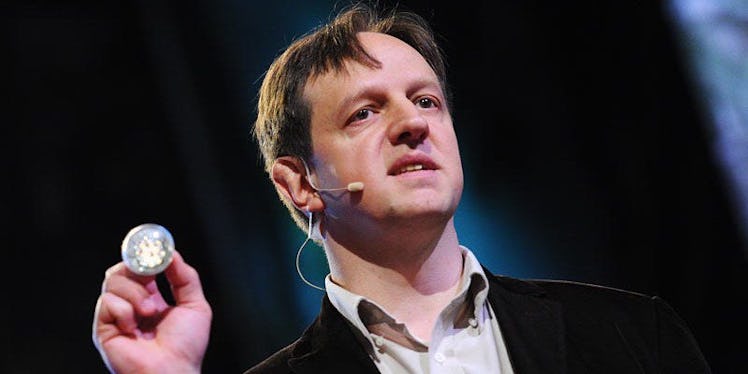
This New Technology Could Make Your Internet 100 Times Faster Than WiFi
An alternative Internet source can reportedly produce connection speeds up to 100 times faster than WiFi.
The technology known as Li-Fi was invented in 2011 by Professor Harald Haas of Scotland's University of Edinburgh, The Telegraph reports.
Li-Fi uses LED lights that switch on and off within nanoseconds to transmit data across networks.
Haas previously proved a single LED light is able to transmit more data than an entire tower of cellular power.
Recent tests in Estonian offices and industrial centers found Li-Fi was able to achieve speeds of 1 Gbps (gigabits per second).
With this speed, Internet users would only need to wait a few seconds to download a high-definition movie, according to Mashable.
Lab tests reportedly yielded astonishing speeds of up to 224 Gbps.
Li-Fi's signal, however, is powered by light so it cannot travel through walls like WiFi. But, this limited range could allow for more secure connections and prevent interferences from other devices.
Filling one's home with additional LED light bulbs to form a network is also likely cheaper than buying several WiFi routers.
Numerous airlines are reportedly testing Li-Fi with hopes of offering the technology during flights, and intelligence agencies reportedly expressed interest in using Li-Fi for transferring wireless data.
According to Yahoo! News, the CEO of one of the Estonian companies that tested Li-Fi said the technology could be available for the public in just a few years.
He also noted, however, it will probably be a lot longer than that before Li-Fi is used on a mass scale since all Internet-related devices would need to be restructured for compatibility.
Here's Professor Haas explaining Li-Fi at a TED Talk in 2011.
Citations: Get ready for LiFi a technology 100 times faster than WiFi (Mashable), LiFi Internet First RealWorld Usage Boasts Speed 100 Times Faster Than WiFi (Yahoo! News), LiFi 100 times faster than WiFi tests prove (The Telegraph)